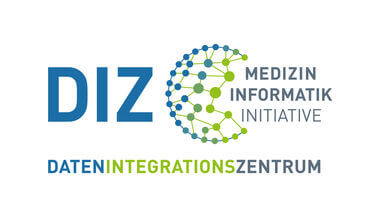What is the Medical Data Integration Center?



The Medical Data Integration Center at Heidelberg University Hospital was established as part of the Medical Informatics Initiative (MII). The aim of the Medical Data Integration Center (MeDICs) at Heidelberg University Hospital is to make data from medical care available to practitioners and researchers so that it can be used for improved integrated patient care and greatly expanded interdisciplinary research opportunities. The hospital's currently fragmented databases will be merged into a central MeDIC platform for this purpose.
When collecting and storing the data, the data protection regulations in accordance with the General Data Protection Regulation (GDPR) are observed. Data is only made available to external researchers if the patient has consented to the use of their data for research purposes. For more detailed information on the provision and use of data, see the Processes section.
Further information
What is Broad Consent?
A lot of data is generated during your treatment in hospital or at the doctor's surgery. Researchers would like to use this data to better understand diseases and thus develop better diagnostic and therapeutic options.
The MII's Broad Consent gives you as a patient the opportunity to indicate whether you agree to your data being used for research across institutional boundaries.
Before the data can be used for research purposes, the researchers must apply for the data and the local "Use and Access Committee" must usually agree to this use.
Before the data is passed on for research purposes, it is also pseudonymized. This means that your identifying data is replaced by codes so that the researcher cannot recognize from which patient the data originates.
You can find detailed information in the following video.
You can download the text of the patient information here.
You can also find further information here: http://www.vernetzen-forschen-heilen.de
If you have any questions about Broad Consent, you can also contact us at broad.consent(at)med.uni-heidelberg.de.
Processes
How can I give my consent to the use of data in MeDIC?
In some clinics, you will be asked after your admission whether you are interested in broad consent. There you can ask questions about broad consent and then hand in your consent documents.
Where can I revoke the consent I have already given?
The revocation is made via the e-mail address treuhand@med.uni-heidelberg.de.
How do I get more answers to my questions?
What is the medical informatics initiative?
In the Medical Informatics Initiative (MII), a nationwide funded project, scientists from medicine, informatics and other disciplines at German university hospitals are working together. Their goal is to digitally network patient data generated during a hospital stay throughout Germany. In this way, research can be conducted using this data to cure diseases faster and better in the future. The German Federal Ministry of Education and Research (BMBF) is funding the medical informatics initiative initially until 2021 with around 160 million euros.
What are the goals of the Medical Informatics Initiative?
The aim of the medical informatics initiative is to make patient data from routine care usable for medical research. The research results thus obtained should help to better detect, treat and prevent diseases as effectively as possible. The medical informatics initiative is also intended to help patients benefit more quickly from validated research findings.
The data will be used to gain new insights into the development of diseases, including the interaction of genetic predispositions, lifestyle and environmental influences. However, the scientists also expect to gain insights, for example, into risk and protective factors in diseases and into individual factors that influence the effectiveness of drugs and therapies. With the totality of the findings, the care of patients is to be further improved.
Who is involved in the medical informatics initiative?
Many different players from medical research and healthcare are involved in the medical informatics initiative. The German Federal Ministry of Education and Research (BMBF) is funding four associations of university hospitals and other partners, known as consortia:
- DIFUTURE (Data Integration for Future Medicine)
- HiGHmed
- MIRACUM (Medical Informatics in Research and Care in University Medicine)
- SMITH (Smart Medical Information Technology for Healthcare)
In the four consortia, almost all of Germany's university hospitals are working together with research institutions and companies at more than 30 locations. In dialog with other stakeholders such as health insurance companies, patient representatives and physicians' associations, they jointly develop the framework conditions for ensuring that findings from research can reach patients directly. A coordination office organizes and supports the overarching and nationwide collaboration of all players. It is run by the Technology and Methods Platform for Networked Medical Research e.V. (TMF). The Medical Faculty Association (MFT) and the Association of University Hospitals in Germany (VUD) are also involved in the management.
How do I benefit as a patient from the medical informatics initiative?
The Medical Informatics Initiative aims to network patient data for many different medical research purposes and make it available to medical research in order to achieve broad benefits for the general public. The goal is to feed medical research results back into care. This can optimize treatment and increase patient safety, for example because diagnoses can be made more quickly and accurately, duplicate examinations can be avoided, or adverse drug reactions can be prevented. In addition, patients can be characterized more individually. This will increasingly make it possible to determine the best treatment approach before therapy begins. These tailored therapies can lead to greater treatment success or reduce side effects.
How can I participate as a patient or citizen?
As Heidelberg University Hospital, our trained staff will inform you on site about the possibility of participating in the medical informatics initiative. During the discussions, you will learn how to consent to the use of their data and how to revoke their consent at any time. Of course, they will also have the opportunity to ask questions. Consent to data use for research as part of the Medical Informatics Initiative is currently not possible without treatment at a participating university hospital. Regardless of participation in the initiative, future improvements in care through medical informatics will, of course, benefit all patients.
After the educational interview, you will be asked to consent to the use of your data for medical research purposes. This consent is voluntary and can be revoked at any time without giving reasons. Since it is not yet possible to say for which medical issues health data may be relevant in the future, consent to the use of data within medical research and care is formulated in general terms. This ensures that medical research in Germany can also solve future tasks and new challenges more quickly with the help of data analyses.
Detailed information on the declaration of consent can be found in the patient information leaflet.
What data is collected?
Your patient data is collected. This is all information about you that is used on the occasion of your examination and treatment, e.g.: Data from doctor's letters, your medical history or findings and data from medical examinations such as blood pressure measurements or X-rays; this also includes the results of laboratory tests, including any tests carried out on your genetic material (e.g. for congenital genetic diseases or acquired genetic changes, including tumors).
How is my data protected?
All data that directly identifies a person - name, date of birth, address - is encrypted (pseudonymized) before being passed on to other researchers. This means that the data can no longer be directly assigned to your person. Only if you explicitly request it, selected data can be traced back to you, e.g. so that your attending physician can inform you about additional medical findings discovered through data analyses. Personally identifying data will never be disclosed to researchers or other third parties, in particular insurance companies or employers, except in cases permitted by the individual or regulated by law.
Does my consent affect my treatment?
Your consent is voluntary and will not affect your treatment.
Who is allowed to do research with my data?
In order to be allowed to use data for a research project, researchers must first submit an application. This application is reviewed by an independent ethics committee and our Use & Access Committee at Heidelberg University Hospital. The Use&Access Committee approves or rejects the application. This procedure excludes any unethical use of the data and ensures a high scientific quality of the data analyses. If a research application is evaluated positively, the researchers are given access to the data. In this way, universities, research institutes and research-based companies can use the patient data - but only for the requested medical research purpose.
How long will my data be stored?
With your consent, your patient data for the next five years will be used for medical research. After that, you will be asked for your consent again. Your patient data can be stored and used for research purposes for up to 30 years if you do not revoke.
Can I revoke my consent?
You can revoke or change your consent at any time without giving reasons.
Where can I find more information?
For more in-depth information on the medical informatics initiative and current work results, please visit the initiative's homepage: www.medizininformatik-initiative.de.
Cooperating projects
The following projects use the MeDIC
- Use Case POLAR - POLypharmacy, drug interactions, risk
- Use Case CORD
- ZPM - Center for Personalized Medicine
- nnGM
- DsdSO - Data Science driven Surgical Oncology
- PART - Predictive Analytics for Robustness Testing
- Surgomics
- PAItient
- KoMed
- NUM AKTIN
- NUM CODEX
Contact
E-mail: medic(at)med.uni-heidelberg.de
Telephone: 06221 - 56 6256